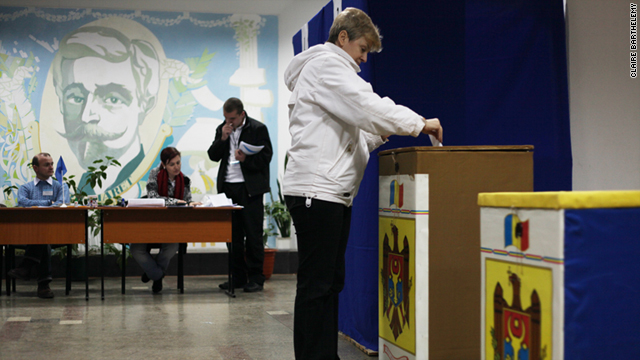
Chisinau Says Pro-Moscow Provocations Ahead
Publication: Eurasia Daily Monitor Volume: 11 Issue: 162
By:

Mihai Balan, director of Moldova’s Intelligence and Security Service (SIS), says the organization has evidence that Moscow is planning to stage provocations in his country in the coming weeks, in advance of the Moldovan November parliamentary elections. Russia will utilize not only traditional sources of Transnistria in the north and Gagauzia in the southeast, he argues, but Moscow also intends to put in play “hundreds of NGOs [non-governmental organizations]” and political parties that receive financing and direction from the Russian government. The goals of these actions, he says, are to sow confusion and split Moldova apart (inforesist.org, September 10).
According to Balan, “the country’s leadership is receiving information in a timely fashion about the situation in the country and in the region.” But he said that “citizens, too, must be vigilant and not fall victim to provocations by those forces that do not wish good for our country. Unfortunately, the number of such provocateurs is greater than those who love the Republic of Moldova.” Nonetheless, he pledged that “if not today, then tomorrow, those responsible will answer before the law.”
To counter this growing threat, Balan said that Chisinau has stepped up control measures concerning visitors to Moldova, “in the first instance at the Chisinau airport,” in the hopes of blocking an influx of activists who might be used to stir up trouble. Some suspicious individuals have already been detained and then sent back to their country of origin, the security services chief noted.
Three things about Balan’s statement are significant. First, while he said that Transnistria and Gagauzia remain problems, his remarks suggest that Chisinau is now more worried about groups within the Moldovan population that Moscow is organizing to challenge the existing regime. Almost all Western analysis has focused on one or the other of these neuralgic problems rather than on divisions real or promoted by Moscow within Moldovan society. Balan’s comments suggest that it is time to refocus attention there, while not neglecting the ways in which Moscow can exploit either Tiraspol or Komrat.
Second, his remarks call attention to a calendar that few outside Moldova have appeared to pay attention to: the approaching parliamentary campaign in which ethnic tensions are likely to run high in any case. If Moscow is focusing on this, then the probability that it will organize provocations in Moldova will increase with each passing week before the vote. Electoral campaigns are typically the time when emotions are most raw and when demagogues can play on them to destabilize the situation. Putin has been particularly sensitive in his planning to the timing of his actions, and it is almost certain that the Kremlin—even if not the West—is focusing on this calendar.
And third, Balan’s tone was distinctly pessimistic, suggesting that he and others in the Moldovan government are worried that such provocations may have their intended effect; typically, government officials and especially those in the security agencies exude confidence. Granted, it is of course possible that the security chief is seeking more funding for the SIS and increased support of other kinds by playing up a conflict that few have paid attention to up to now and one that, within Moldova, only his organization is ready to deal with.
That emotions and even fears of such Russian actions in Moldova are running high is suggested by the statements of several other Moldovan leaders. In particular, Mihai Gimpu, the leader of the Liberal Party of Moldova, which favors ending that country’s neutrality and pursuing membership in the North Atlantic Treaty Organization (NATO), says he fears that “first Russia will swallow Ukraine and then eat us for dessert.” He continued, “We are a small country of three million residents and with a weak economy that rests on tomatoes and carrots. Would we be able to survive if Putin goes further? Of course, not” (regnum.ru, September 5).
The concerns Bilan has expressed and the emotional tone of Gimpu’s remarks mean that there is almost certainly going to be trouble ahead in Moldova. That danger is something Western officials must take into consideration, not only with respect to Moldova, but also in their planning for Ukraine. If the situation in Ukraine deteriorates or even continues at its current level, there will be an increasingly serious chance that Moscow will make a move in Moldova, which, in turn, could additionally destabilize Romania and, indeed, a good portion of the Balkans. And to the extent a scenario like this occurs, Hungary almost certainly would become involved as well—a reminder that once again, as a century ago, some small thing in the Balkans could trigger a much bigger conflagration for Europe and the world.




